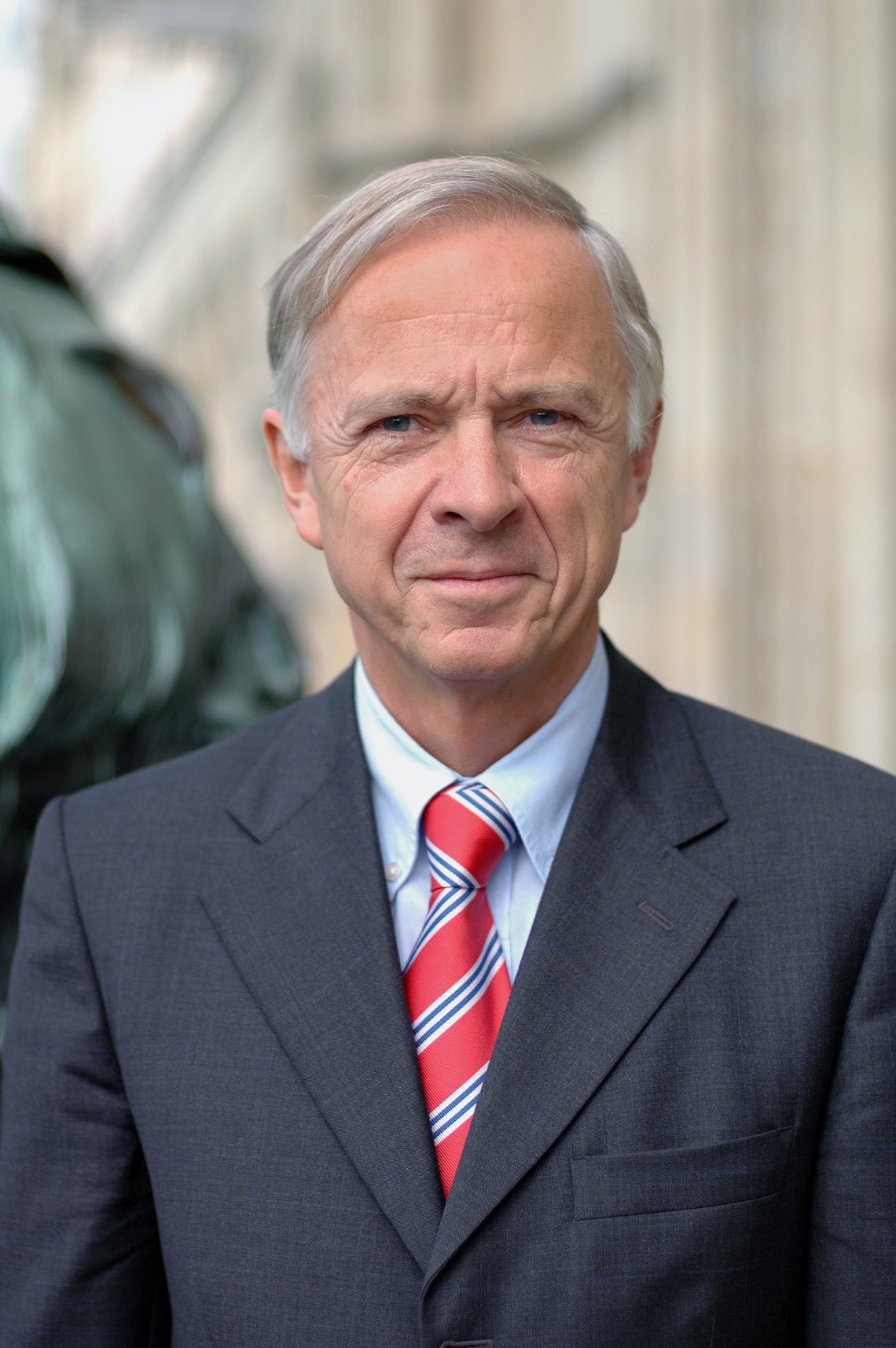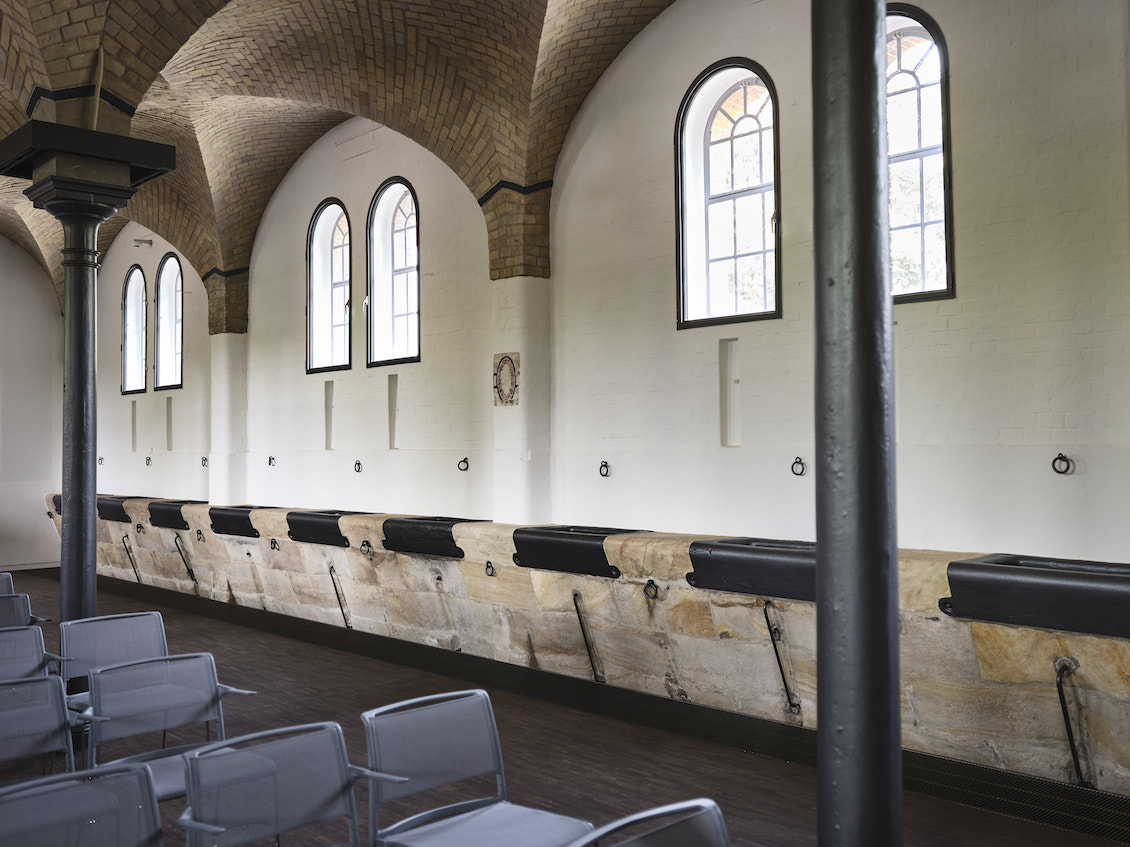
In Germany and elsewhere, horsepower is still a frequently encountered, outdated unit of power measurement. In the past, it was supposed to show how many horses could replace a machine. Leibniz University in Hanover has now redefined the unit of measurement. The royal stables were built in 1888 and are protected buildings. Their refurbishment has given the university a boost in its quest for new knowledge, exceptional ideas and cross-disciplinary approaches. Because the former stables for the horses that belonged to the monarch’s military now accommodate a new communications and meeting hub for the arts, academia and industry over floorspace of 1,575 square metres.
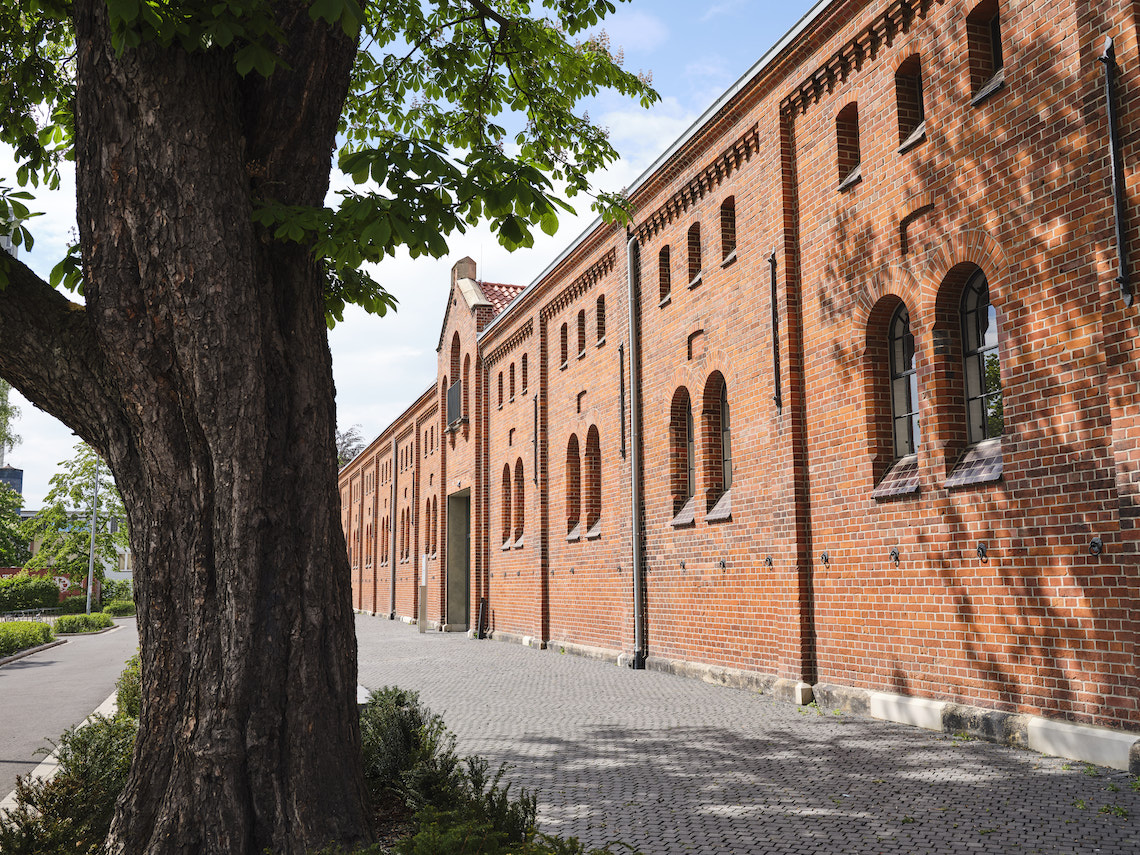
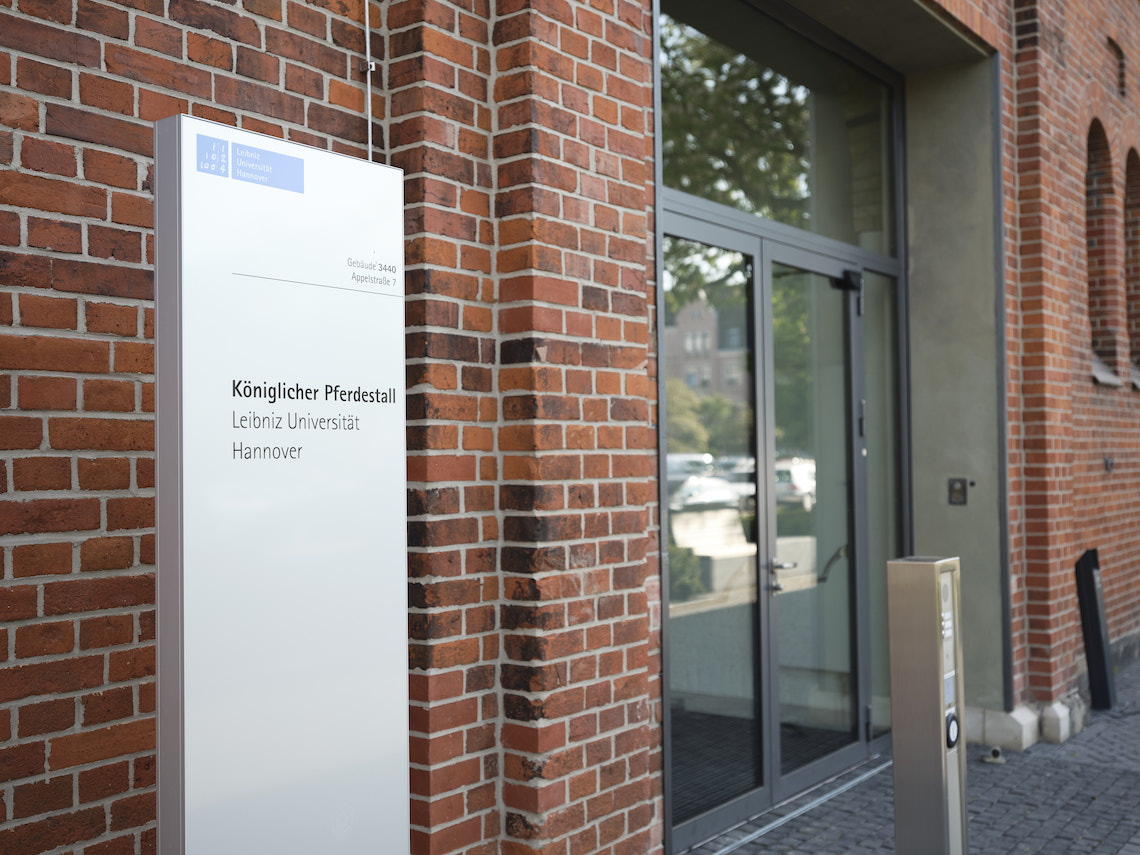
What will drive us in future? Horsepower will continue to play a role but the royal stables have much more to offer as an interactive space between the townspeople and their university, as well as between industry and academics. Ideas and stimuli are generated here in an inspiring environment. The new stables will be a venue for concerts, performances, exhibitions, seminars and lectures over two storeys. The redevelopment presented the architects with quite a few challenges. The goal was to retain the historical building structure to the greatest extent possible, but the furniture had to comply with the new multipurpose, flexible usage forms and blend in with the architectural concept.
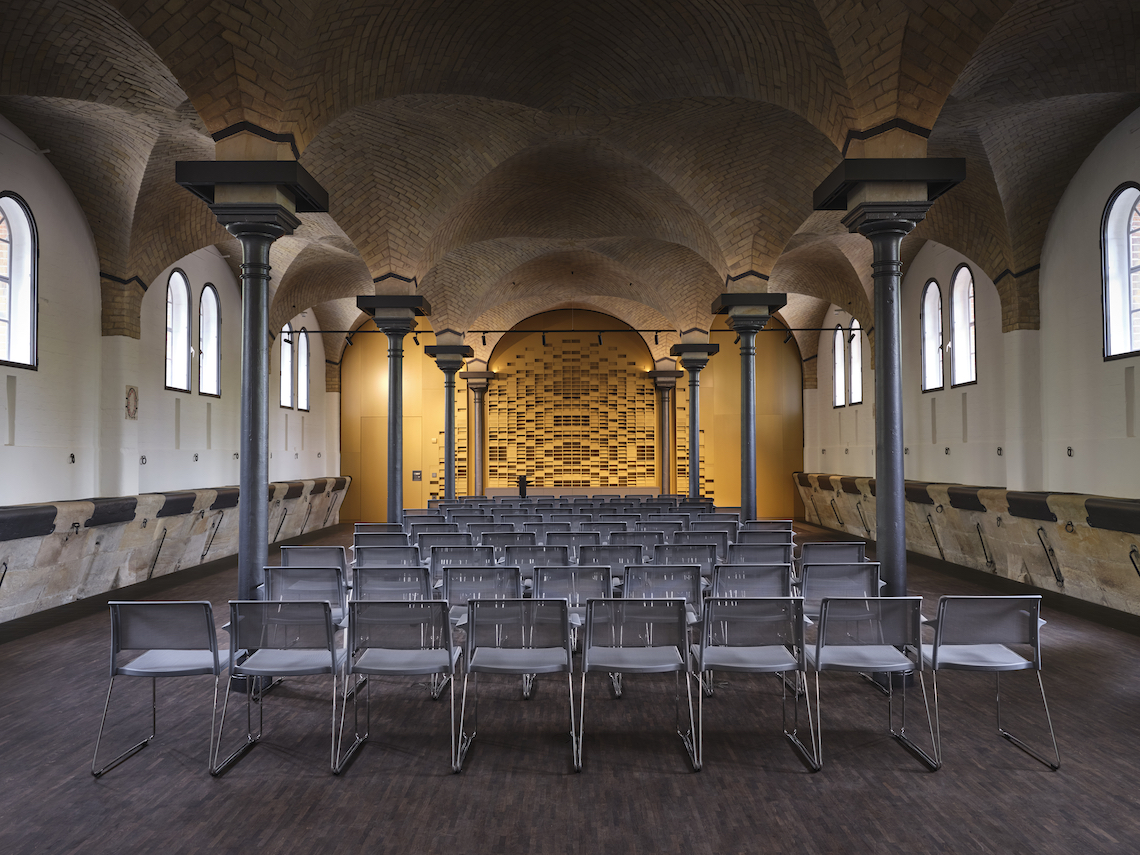
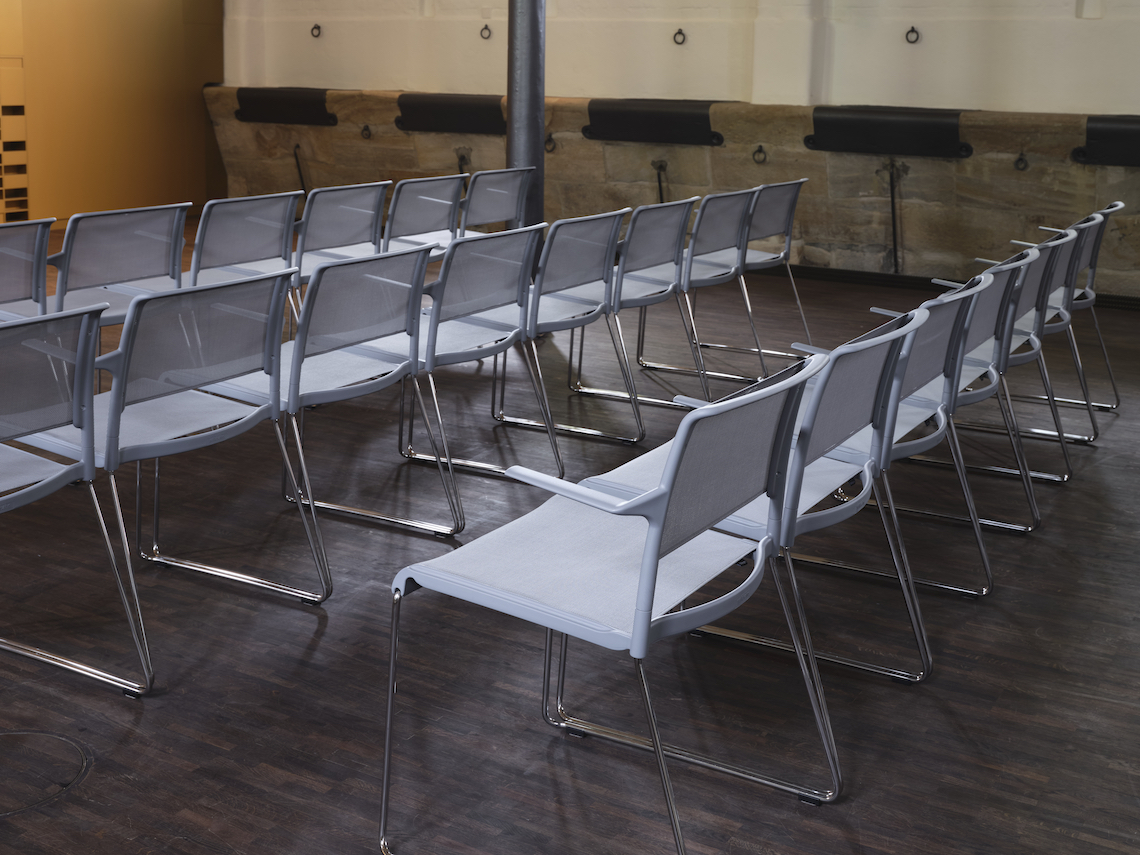
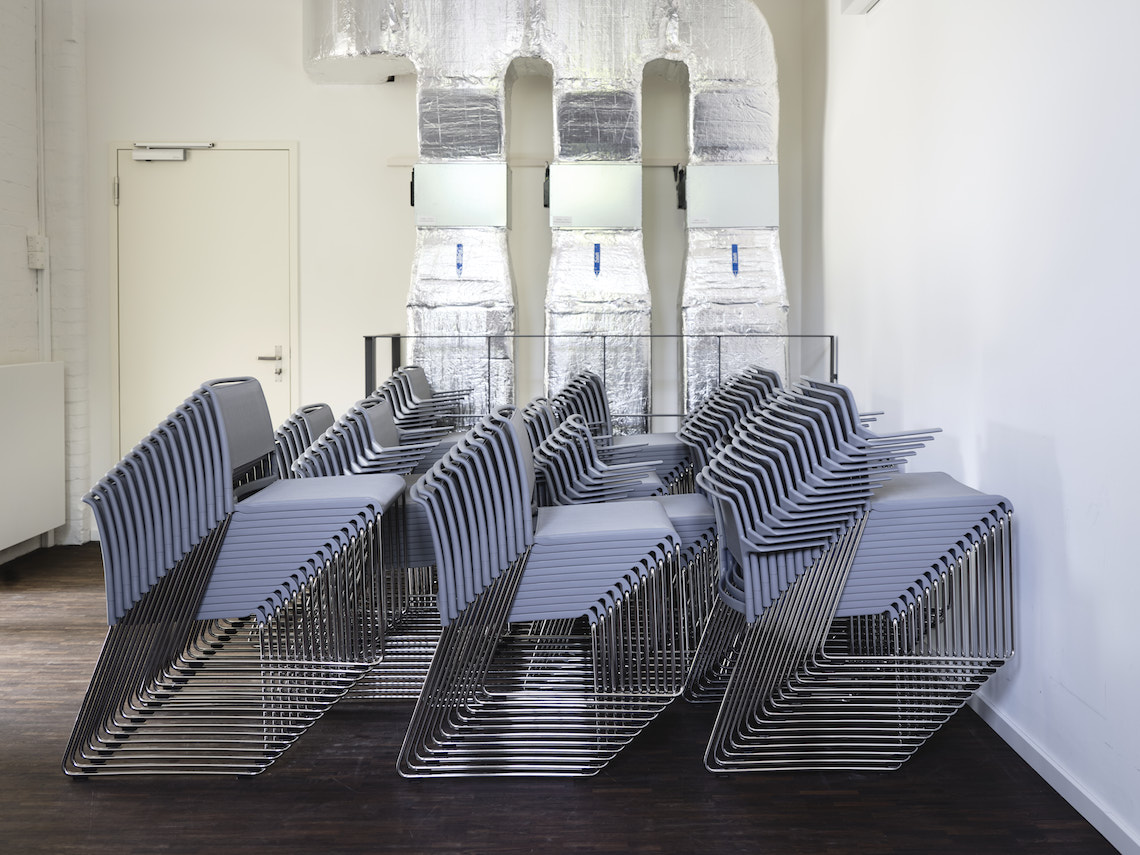
Special focus was placed on the event space. The architects found the ideal solution for the impressive centrepiece of the building in the shape of Wilkhahn’s Aline sled-base chair (design: Andreas Störiko). Because the practical chair is covered with a transparent, high-performance fabric and is comfortable to sit on due to the constant flow of air at the back. What’s more, the elastic chairs can be moved or stacked in no time and kept in the adjacent space at the back of the stage. The sled base allows university staff to stack the Aline chairs in a compact, safe and form-fit way.
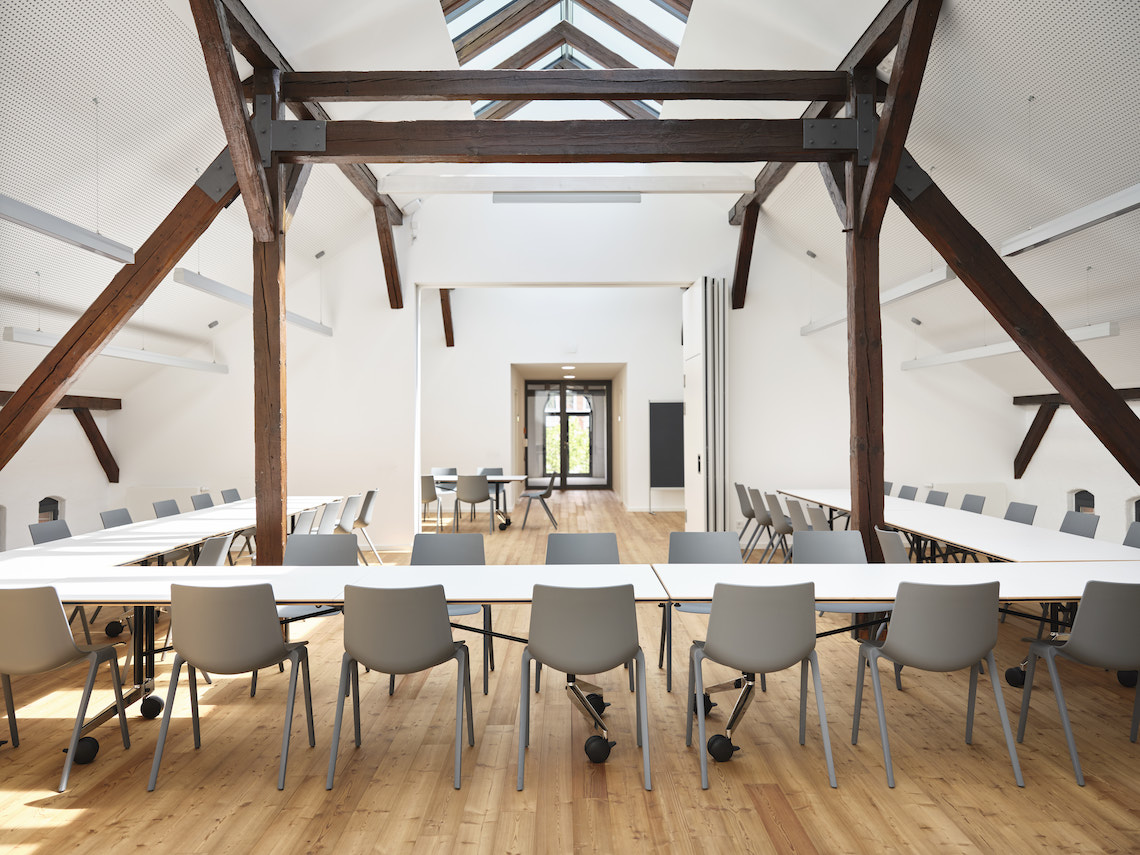
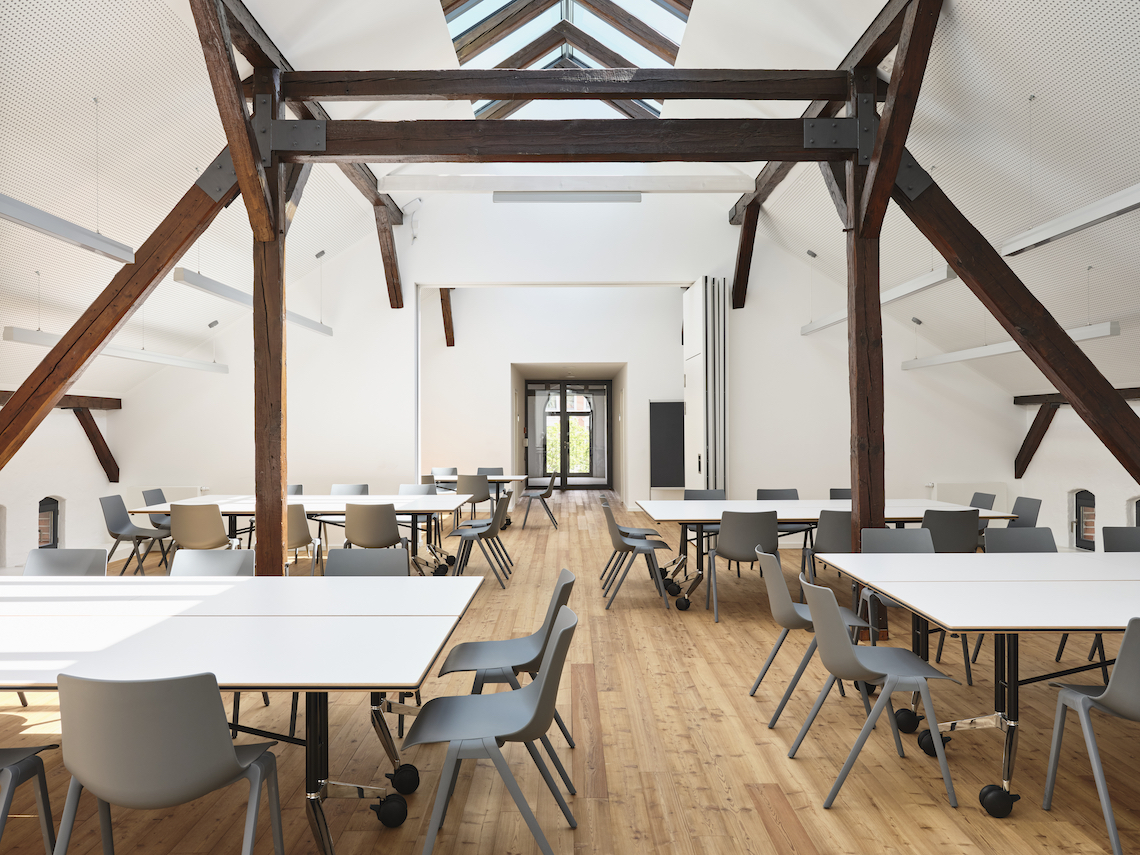
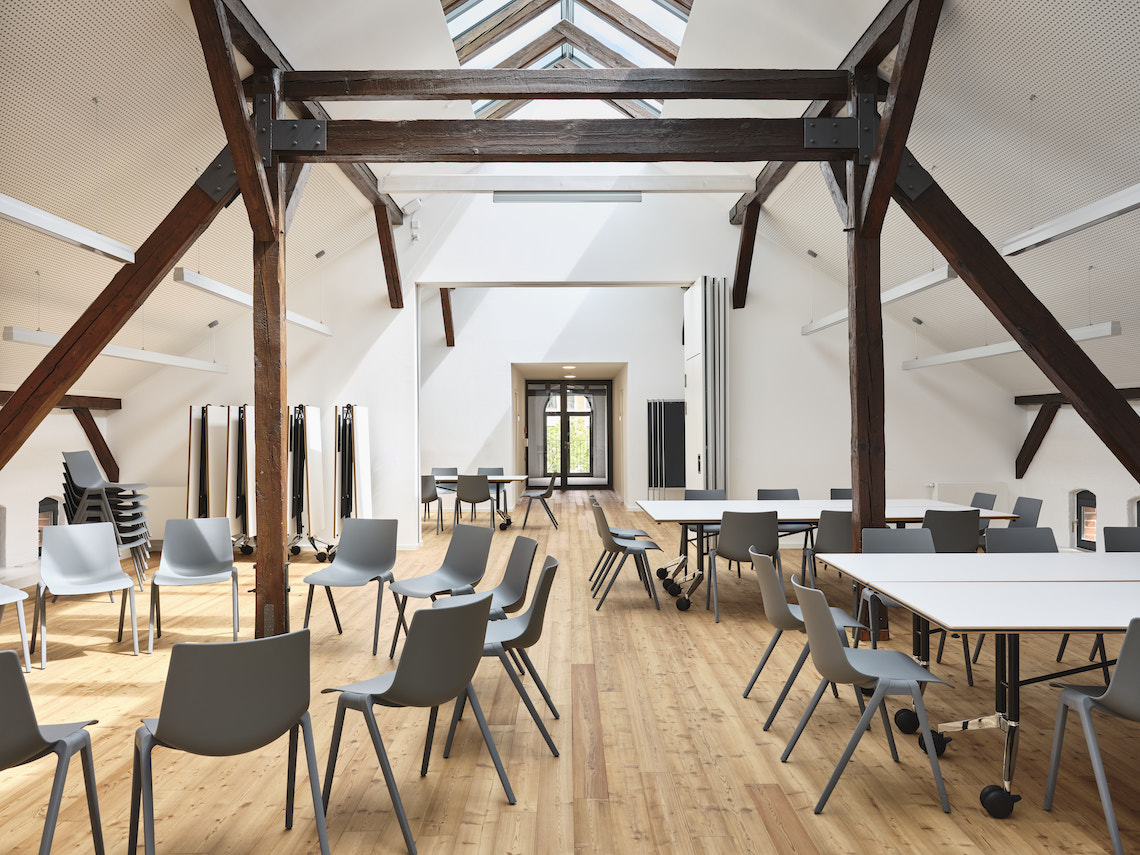
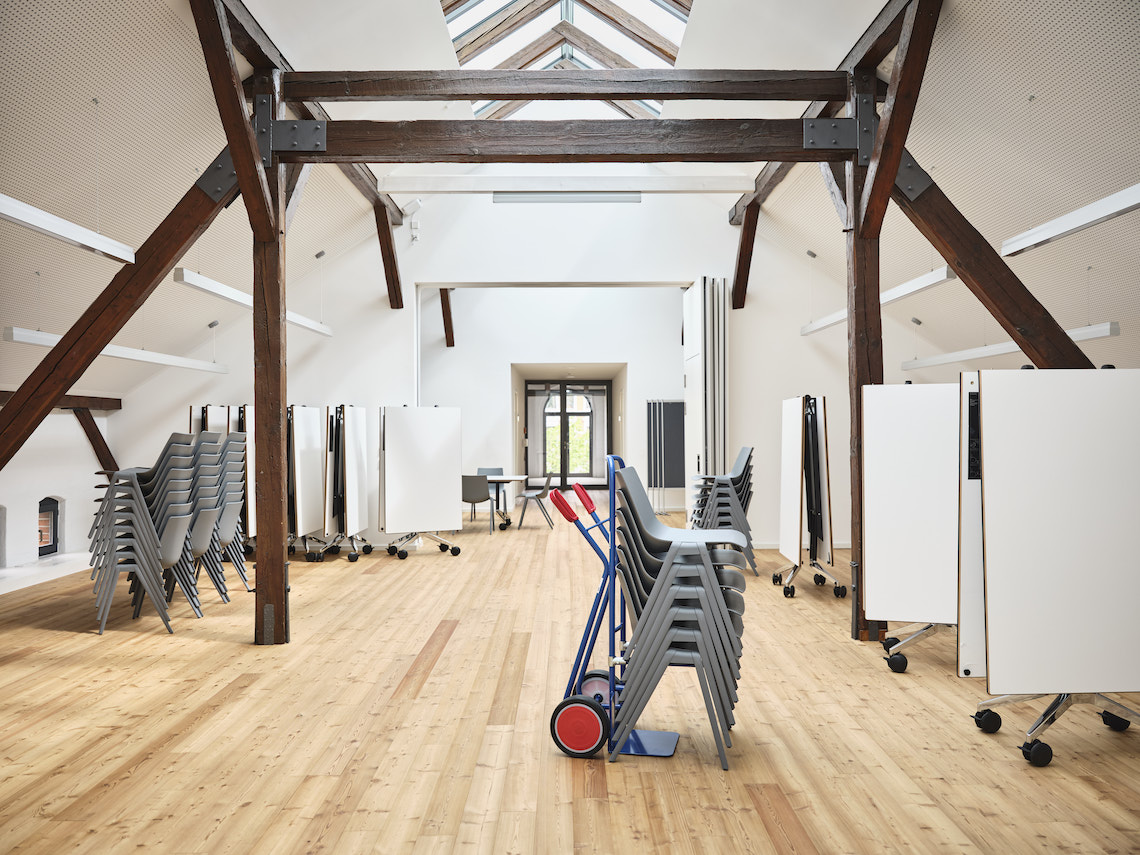
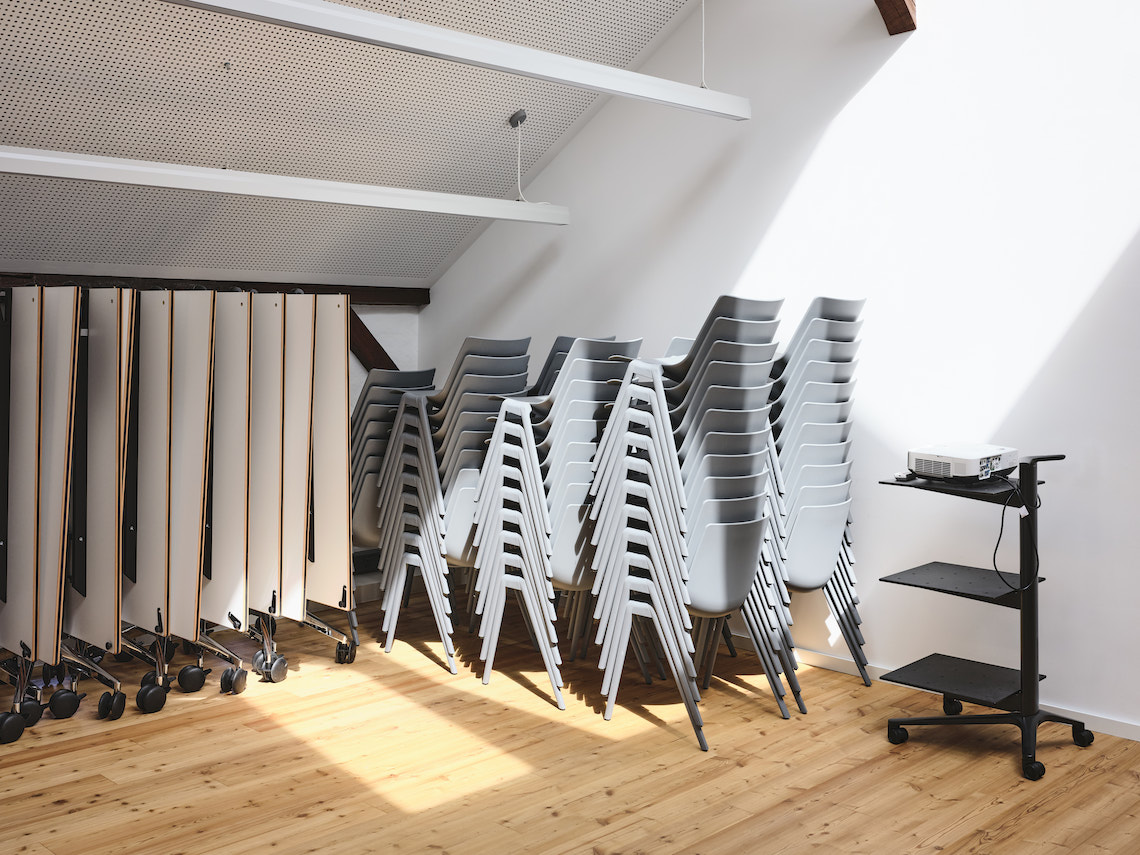
Ideas require creative environments, so the single-person and open-plan offices are on the top storey. Two, mobile partition wall systems provide versatility, guaranteeing that spaces can be divided up to suit different purposes. Workspaces can be designed flexibly in the open space and reconfigured as seminar and conference areas. This is where Wilkhahn’s Confair flip-top table (design: Andreas Störiko) and Aula multipurpose chair (design: Wolfgang C.R. Mezger) reveal their strengths. If required for a major seminar, Confair can be linked with other tables to form a table system and also quickly flipped up and wheeled to one side. And then there’s the stackable Aula chair with its attractive, elastic and ergonomically shaped seat shell to provide support and comfort during long seminars to people of all shapes and sizes. What’s more, it also meets the architects’ aesthetic requirements because the precise lines and transition points of the base frame, armrests and seat shell lend the chair a sculptural look. Both Confair and Aula coordinate stylishly with one another and allow a creative and spontaneous response to different types of usage.
We’re delighted that Wilkhahn supported us with this demanding redevelopment and conversion project. The timelessly modern design of the furniture fits in perfectly with the historical architecture. And the furniture’s sophisticated functionality quickly and easily indicates all the different ways it can be used. These multipurpose aspects are the cornerstones of the interior-design concept for conferences, workshops, galas and cultural events.
